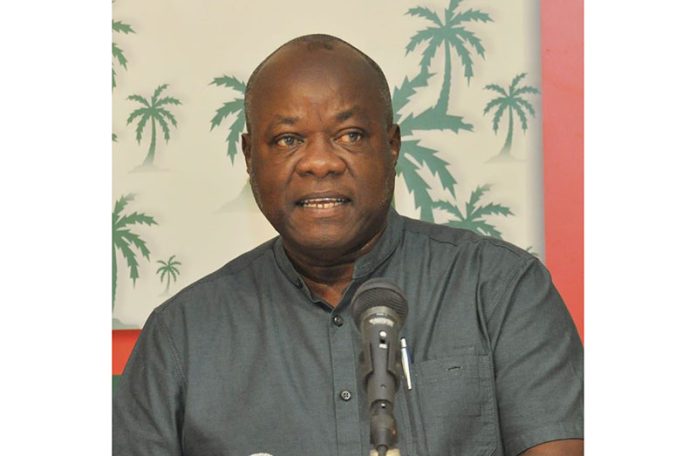The recent court ruling has left Mocha squatters facing a daunting $2 million in costs, igniting a debate over the advice given by the Leader of the People’s National Congress Reform (PNCR), Aubrey Norton. During a press conference held at Congress Place in Sophia, Norton asserted that he had always provided prudent guidance to the squatters, contrary to claims that he encouraged them to resist government offers of alternative housing.
Despite previous allegations from various reports suggesting that opposition parliamentarians had incited the squatters to “stand their ground” and pursue legal action against the government, Norton insisted, “We never said to anybody not to accept alternative housing.” He maintained that his counsel was aimed at leading them down a beneficial path.
In the wake of the court’s decision, which confirmed the government’s ownership of the disputed land, President Dr. Irfaan Ali expressed willingness to engage with the squatters, despite their recent legal setbacks. The Chief Justice (ag), Roxanne George, ruled against the squatters, mandating that they pay $2 million in costs to the Attorney-General, the Central Housing and Planning Authority (CH&PA), and the Guyana Sugar Corporation (GuySuCo). The ruling underlined the government’s rights to remove the squatters after they failed to establish any legal claim to the land.
Attorney-at-law Ralph Ramkarran weighed in on the situation, stating that the Mocha squatters had been “grossly misled,” pointing to the political motivations behind their resistance. In his Conversation Tree blog, he remarked on the political and ethnic tensions that surfaced during the conflict. The squatters’ case, which claimed constitutional violations and deprivation of property rights, was ultimately dismissed by the Chief Justice, who noted their refusal to relocate despite multiple offers from the government.
Historically, the squatting issue in Mocha-Arcadia has been contentious, with many residents occupying state-owned land earmarked for a road project. While most squatters accepted government compensation and alternative housing, a small group, totaling seven, declined to relocate, despite negotiations that had been ongoing since 2008. Ramkarran noted that the Ministry of Housing had made substantial offers, yet some individuals rejected them outright, with one seeking as much as $60 million.
The situation escalated in January 2023, when the government began demolishing the remaining structures, leading to confrontations between squatters and officials, with opposition figures present to support the residents. The evictions sparked accusations of racial discrimination, framing the situation in a broader context of ethnic tensions, with some critics likening the demolitions to ethnic cleansing.
Justice George’s ruling clarified that the squatters, having refused the government’s offers, were trespassing and had no legal standing to remain on the property. “The applicants would have become trespassers after being asked to remove from the land for which they had no title,” she stated, emphasizing that their continued occupation was at their own risk.


